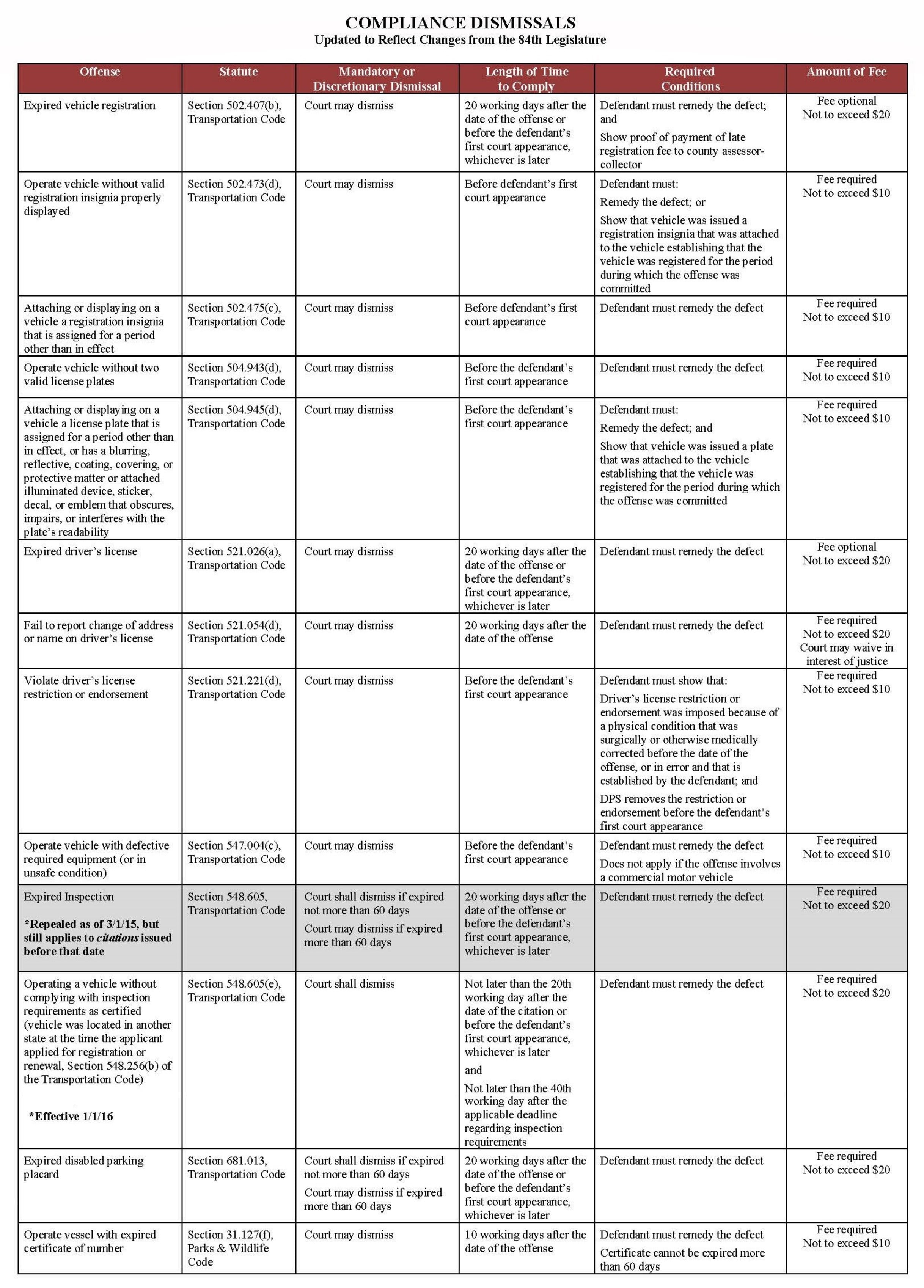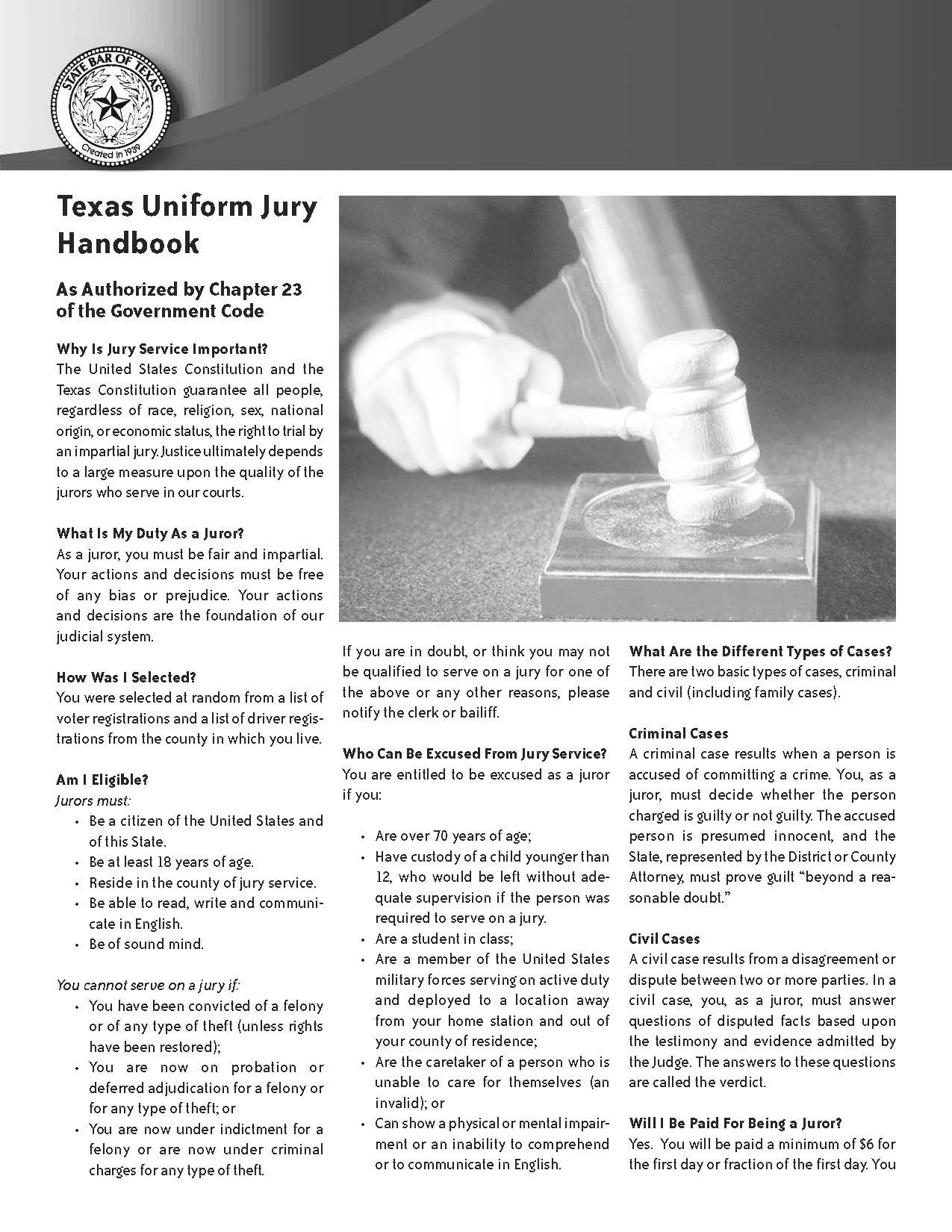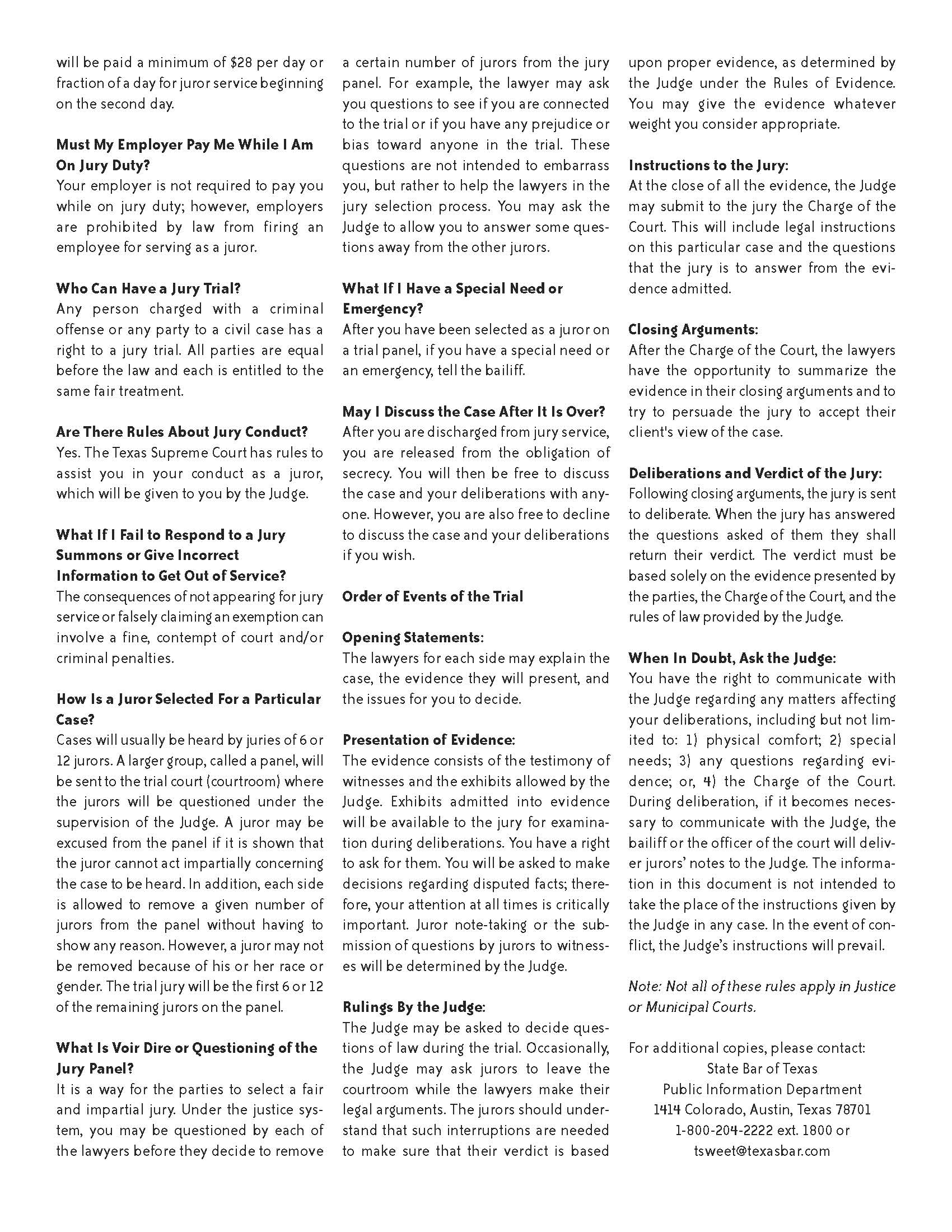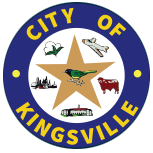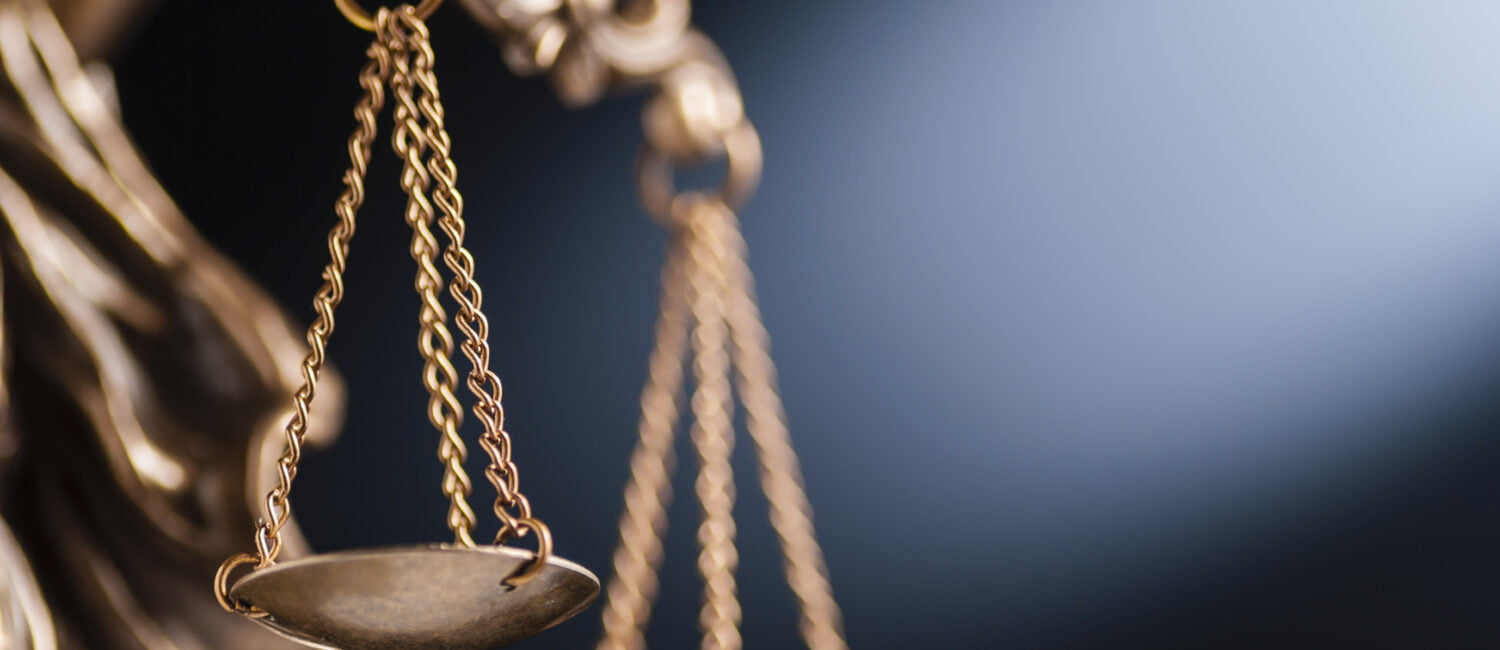
Municipal Court
Court Information
- Judge: Honorable Judge M. J. Krueger
- Court Clerk: Victoria Butler
- Mailing Address: P.O. Box 1458, Kingsville, TX 78364
- Physical Address: 200 E. Kleberg, Kingsville, TX 78363
- Office Telephone: (361) 592-8566
- Fax: (361) 593-1736
- E-Mail: court@cityofkingsville.com
Court Office and Telephone Hours
Monday – Friday
8 a.m. – 5 p.m.
COURT HEARING SCHEDULE
The Kingsville Municipal Court will NO LONGER be holding virtual court appearances for the below scheduled court docket dates. Court docket hearings will be held in person downtown in the Municipal Building, located at 200 E. Kleberg, Kingsville TX, 78363.
Court Hearing dates:
July 17th
August 14th
August 28th
September 11th
September 25th
October 9th
October 23rd
November 6th
November 20th
December 4th
December 18th
Holiday Closures:
September 1
October 13
November 11, 27, 28
December 24 and 25
IMPORTANT COURT HEARING INFORMATION:
The following items are prohibited in the Kingsville Municipal Court Room and should be left in your vehicle:
- Cameras, tape recorders, or other mechanical recording devices
- Any type of weapons, including mace and tasers
- Any sharp objects, including knives, tweezers, screw drivers, knitting needles, crochet hooks, etc.
- Beverage containers or edibles
Court Rules
Pursuant to the authority of Art. 45.203(b) of the Texas Code of Criminal Regulations
- All persons appearing for court must be present in court at the time specified by the court or a failure to appear may be rendered on the late party
- All persons shall dress appropriately for all court proceedings
- Inappropriate attire includes:
- Pants that sag and/or expose undergarments
- Flip-flops
- Muscle shirts and tank tops
- Shorts of any type
- Pajamas
- Clothing that is dirty or unsanitary
- Shoes shall be worn at all times
- No hats or sunglasses shall be worn in the courtroom
- Obscene language or images are prohibited
You MUST contact the court to provide your most current mailing address, phone number and email address. This will ensure you are kept up-to-date and will be able to receive more information about your virtual hearing. You All documents that you wish to present in your hearing, such as driver’s licenses, identification cards, or insurance cards, must be submitted no later than noon the day before your hearing.
The Municipal Court strives to serve the citizens of Kingsville by upholding justice in the fairest, most efficient manner possible. Our department’s main objective is to conclude each case with a satisfactory legal process by which we work to ensure the adherence to all State laws and city ordinances, review violations on a case by case basis according to charges filed by local law enforcement and resolve each case by dismissing charges or ordering the payment of fines.
Mission
The Kingsville Municipal Court’s operations are committed to providing quality customer service to all who appear in the court while we diligently execute the administrative duties of the Municipal Court as set forth by law. We promise to be innovative in creating methods and techniques that allow us to be more responsive to the needs of the public.
The Municipal Court is the judicial branch of the government of the City of Kingsville. The courts adjudicate Class C misdemeanor cases, most of which are criminal, including traffic, city ordinance, state code, juvenile, parking and disabled parking. It is committed to administering justice in a fair, efficient, and timely manner. Court services are increasingly available online, by telephone, and through the mail which contributes to compliance in a customer service and eco-friendly way.
We invite you to explore the links on this page to find information regarding Municipal Court procedures for cases regarding adults and juveniles, as well traffic violations.
Court Payments
Kingsville Municipal Court
P.O. Box 1458, 200 E. Kleberg
Kingsville, TX 78363
Method of Payment
JUVENILES/ Minors charged with an Alcohol Related Offense
Juveniles under the age of 17 must appear before the judge in open court before payment of a fine will be accepted. Minors under the age of 21 charged with an alcohol-related violation must appear before the judge in open court before payment of a fine will be accepted.
By Mail: Sign the bottom of the citation and enter a plea. Make a cashier’s check or money order payable to the City of Kingsville.
At the clerks window: Pay with cash, cashier’s check, money order, or credit card (MasterCard / Visa only) during office hours. By credit or debit card Online: https://www.municipalonlinepayments.com/kingsvilletx/court/search
When making payment on the Internet, I acknowledge I am voluntarily entering a plea of No Contest and waiving my right to a trial by judge or by jury and my right to discovery of evidence.
Payment online will constitute a conviction being reported on your driving record to the Texas Department of Public Safety as required by law. However, you may qualify for a program to keep a conviction from being reported. Please contact the court office at 361-592-8566 to inquire about options that may be available such as a Driver’s Safety Course or Deferral Program before your court scheduled appearance date.
• If you wish to plea Not Guilty, do not make payment of your fine. Contact the Court at 361-592-8566 for information on filing a plea of Not Guilty.
• Your internet payment will be received by the Kingsville Municipal Court the following business day. Your payment must be received by your due date to avoid additional fees or issuance of a warrant.
• If you have an active warrant, your warrant will remain outstanding until the court receives your internet payment on the following business day.
“If you are convicted of a misdemeanor offense involving violence where you are or were a spouse, intimate partner, parent, or guardian of the victim or are or were involved in another, similar relationship with the victim, it may be unlawful for you to possess or purchase a firearm, including a handgun or long gun, or ammunition, pursuant to federal law under 18 U.S.C. Section 922(g)(9) or Section 46.04(b), Texas Penal Code. If you have any questions whether these laws make it illegal for you to possess or purchase a firearm, you should consult an attorney.”
Pleas
Under our American system of justice, all persons are presumed to be innocent until proven guilty. On a plea of not guilty, a formal trial is held. As in all criminal trials, the State is required to prove the guilt of the offense charged in the complaint, “beyond a reasonable doubt” before a defendant can be found guilty by a judge or jury.
Your decision concerning which plea to enter is very important. Please consider each plea carefully before making a decision. If you plead guilty or nolo contendere in open court, you should be prepared to pay the fine and court costs. You should contact the court regarding how to make payment.
Plea of Guilty: By a plea of guilty, you admit that the act is prohibited by law, that you committed the act charged, and that you have no defense or excuse for your act. Before entering a plea of guilty, however, you should understand the following:
- The State has the burden of proving that you violated the law (the law does not require that you prove that you did not violate the law); You have the right to hear the State’s evidence and to require the State to prove you violated the law; and A plea of guilty may be used against you later in a civil suit (e.g.: If there was a traffic accident (another party can say you were at fault or responsible for the accident because you plead guilty to the traffic charge).
Plea of Nolo Contendere (no contest): A plea of nolo contendere means that you do not contest the State’s charge against you. You will be found guilty, unless you are eligible and successfully complete a driving safety course and/or court ordered probation. A plea of nolo contendere cannot be used against you in a subsequent civil suit for damages.
Plea of Not Guilty: A plea of not guilty means that you deny guilt or that you have a defense in your case, and that the State must prove the charges against you. You will need to decide whether to hire an attorney to represent you. If you represent yourself, the following section on The Trial will help you to understand this procedure.
Court Procedures
Arraignment settings are held every other Thursday at 1:00 p.m. Bench Trial hearings are held every other Thursday at 2:30 p.m. Jury Trials are scheduled once per quarter at 9 a.m.
When a citation is issued, a court date is noted on the citation. You and/or your attorney may appear in person in open court, by mail, or you may make an appearance in person at the court facility. Action must be taken on or before the court date to avoid further charges for failure to appear. When you make your first appearance by mail, the court must receive your plea before your scheduled appearance date.
Juveniles and minors with alcohol charges MUST appear in court to enter a plea before the Municipal Court Judge.
Your first appearance is to determine your plea. If you plead guilty or no contendere, you must also waive your right to trial. If you plead not guilty, the court will schedule a hearing immediately upon your filing and notification will be given to you at the clerks’ window.
Courtroom Conduct
Conduct in the “courtroom” also includes the reception area, hallway waiting area, pre-trial conference area, and/or any office space assigned to the Court.
- Weapons are prohibited in the courtroom and the building; except for law enforcement personnel
- Be on time. Allow yourself ample time to allow for traffic and parking, which is located behind Municipal Building.
- Address the court as “Judge” or “Your Honor”
- Do not approach the Judges bench without permission. Do not rest arms on the Judges bench.
- Do not talk at the same time as the court.
- Racist, sexist, obscene, or profane language is prohibited
- It is normally inappropriate to bring small infants or young children into court proceedings. Please refrain from doing so.
- Cellphones, tablets, Bluetooth devices are inappropriate in the Courtroom. Please turn them off before entering the Courtroom.
- All property in the courtroom and reception areas must be treated with respect. No writing on any papers posted or on any furniture is allowed.
Courtroom Attire
All PERSONS present in the courtroom shall be clean, neat and dressed in a manner that shows dignity and respect for the Court.
Unacceptable attire includes: shorts, cut-offs, or hats. Muscle shirts, t-shirts or clothing indicating gang affiliation or other clothing with offensive, vulgar, racist, sexist, obscene, suggestive words, slogan depictions, or pictures. Provocative clothing designed or styled to provoke emotion or disrupt or distract.
- No food, drink, gum
- No audio/video recordings allowed without judicial approval
- No newspapers
- No purses or bags
ALL PERSONS & PACKAGES SUBJECT TO SEARCH
Penal Code 42.05:
A person who intentionally prevents, interferes with or disrupts a lawful meeting by physical action or verbal utterance commits a Class B misdemeanor punishable by fine and jail.
Trial Information
The Trial
A trial in municipal court is a fair, impartial and public trial as in any other court. Under Texas law, you can be brought to trial only after a sworn complaint is filed against you. A complaint is the document, which alleges what act you are supposed to have committed and that the act is unlawful. You can be tried only for what is alleged in the complaint. You have the following rights in court:
- The right to inspect the complaint before trial and have it read to you at the trial;
- The right to have your case tried before a jury, if you so desire;
- The right to have all testimony introduced against you in open court;
- The right to cross-examine any witness who testifies against you;
- The right to testify, in your behalf;
- The right not to testify, if you so desire. If you choose not to testify, your refusal to do so cannot be held against you in determining your innocence or guilt; and
- You may call witnesses to testify in your behalf at the trial, and have the court issue a subpoena (a court order) to any witnesses to ensure their appearance at the trial. The request for a subpoena may be oral or in writing.
If you choose to have the case tried before a jury, you have the right to question jurors about their qualifications to hear your case. If you think that a juror will not be fair, impartial or unbiased, you may ask the judge to excuse the juror. The judge will decide whether or not to grant your request. You are also permitted to strike three members of the jury panel for any reason you choose, except an illegal reason (such as a strike based solely upon a person’s race).
Continuances
If you need a continuance for your trial, you must put the request in writing and submit it to the court with your reasons prior to trial (at least seven days). A hearing may be necessary in this motion. You may request a continuance for the following reasons:
- A religious holy day where the tenets of your religious organization prohibit members from participating in secular activities such as court proceedings (you must file an affidavit with the court stating this information); or
- That you feel it is necessary for justice in your case.
Presenting the Case
As in all criminal trials, the State will present its case first by calling witnesses to testify against you. After each prosecution witness testifies, you have the right to cross-examine: You ask the witnesses questions about their testimony or any other facts relevant to the case. You cannot, however, argue with the witness. Your cross-examination of the witness must be in the form of questions only. You may not tell your version of the incident at this time–you will have an opportunity to do so later in the trial.
After the prosecution has presented its case, you may present your case. You have the right to call any witness who knows anything about the incident. The State has the right to cross-examine any witness that you call.
You may testify in your own behalf, but as a defendant, you cannot be compelled to testify. It is your choice, and your silence cannot be used against you. If you do testify, the State has the right to cross-examine you.
After all testimony is concluded, both sides can make a closing argument. This is your opportunity to tell the court why you think that you are not guilty of the offense charged. The State has the right to present the first and last arguments. The closing argument can be based only on the evidence presented during the trial.
Judgment / Verdict
If the case is tried by the judge, the judge’s decision is called a judgment. If the case is tried by a jury, the jury’s decision is called a verdict.
In determining the defendant’s guilt or innocence, the judge or jury can consider only the evidence admitted during the trial. If you are found guilty by either the judge or jury, the penalty will be announced at that time. Unless you plan to appeal your case, you should be prepared to pay the fine at this time.
Appeal
If you are found guilty, and are not satisfied with the judgment of the court, you have the right to appeal your case. Since the Kingsville Municipal Court is not a court of record, an appeal is to the Kleberg County Court and is a “trial de novo,” which means the case is tried over again as if the trial in Municipal Court never occurred.
How to Appeal
To appeal your case, you must give written notice of appeal and post an appeal bond with the Court within 10 calendar days of the judgment. The appeal bond is twice the amount of the fine and court costs.
Juveniles / Minors
Mandatory Appearance
- Juveniles: The law requires ALL juveniles (16 and under) to appear before the judge with a parent or legal guardian regardless of the offense.The court will notify you of your arraignment date by mail, sent to the address listed on the citation. If you were issued a citation, you may disregard the appearance date noted. Juveniles who fail to appear or who fail to pay their fine will be reported to the Department of Public Safety who will suspend their driver’s license. If they do not have a driver’s license, they will not be able to obtain one until they appear in court.
- Minors:(17-20) charged with alcohol / tobacco / drug paraphernalia / theft or disorderly conduct offenses must also appear before the Judge. If you are under the age of 18, you must appear with a parent or legal guardian. The court will notify you of your arraignment date by mail, sent to the address listed on the citation. If you were issued a citation, you may disregard the appearance date noted.
Alcohol & Tobacco Offenses
In addition to paying a fine/fee, these two offenses have specific requirements i.e., alcohol or tobacco awareness course and community service, that if not completed will result in your driver’s license being suspended or denied issuance of a driver’s license or permit for a period up to six months.
Expunctions
Court personnel are prohibited in advising or assisting you in the preparation of your petition for expunction. You have a constitutional right to retain legal counsel at your own expense or you can represent yourself in this action as a “pro-se” defendant.
Alcohol
All procedures concerning expunction of any alcohol violation by a minor (under 21 years of age) shall comply with Section 106.12 of the Texas Alcoholic Beverage Code.
Tobacco
All procedures concerning expunction of any tobacco violation by a minor (under 18 years of age) shall comply with Section 161.255 of the Texas Health and Safety Code.
Penal Offenses
All procedures concerning expunction of penal violations by a juvenile (under 17 years of age) shall comply with Article 45.0216 of the Texas Code of Criminal Procedure.
Legal Resources
Kleberg County, Texas – Official Site
www.co.kleberg.tx.us
Phone: 361-595-8548
KLEBERG COUNTY, JUSTICE OF PEACE
Judge Andy Gonzalez PRECINCT 1: 361-595-1352
Judge Carmen Cortez PRECINCT 2: 361-595-8571
Judge Christopher Lee PRECINCT 3: 361-296-3214
Judge Esequiel (Cheque) De La Paz PRECINCT 4: 361-595-8586
Other Helpful Resources
• TexasLawHelp.org – A website for low-income Texans with free information and family law, protective order, and other self-help legal forms
• TexasCourtHelp.org – A website with general information and videos about making your way through the court system.
• Referral Directory for Low-Income Texans (PDF)
• Texas Lawyers for Texas Veterans – A State Bar of Texas project helping low-income military veterans with legal issues.
• Texas RioGrande Legal Aid – serves the Austin/San Antonio area, El Paso area, and South Texas.
State of Texas Department of Public Safety Driving Record Request
LEGAL ASSISTANCE ORGANIZATIONS AND OTHER NON-PROFIT ORGANIZATIONS: www.texaslawhelp.org
FINDING AN ATTORNEY: www.texasbar.com
TEXAS LAW LIBRARIES: www.sll.state.tx.us
TEXAS STATUTES AND LEGISLATIVE PROCESS:
www.statutes.legis.state.tx.us
www.capitol.state.tx.us
TEXAS COURT SYSTEM: www.courts.state.tx.us
Legal Services Support Division: (800) 204-2222, ext. 1855
Email: probono@texasbar.com; facsimile: 512-427-4160
Can the Court or its employees provide me with legal advice on how to handle my citation?
No. Court employees (including the judge) are strictly prohibited by law from providing legal advice to anyone.
Do I have to employ an attorney to represent me in Municipal Court?
No. You can represent yourself. Municipal Courts are not required by law to appoint you a lawyer, but you may retain one yourself. No one other than a lawyer can represent you in court. This applies to parents of juveniles. If you are not an attorney you cannot represent your child in a trial.
Can I pay my fine in installments?
The Court has a payment plan option.
If there is a mistake on the ticket, does that make it invalid?
Not necessarily. If you plead “guilty” or “no contest,” the issue is immaterial. If you plead “not guilty,” a complaint is generated. The contents of the complaint are relevant with regard to a trial.
Can the Judge dismiss my ticket?
A judge can only dismiss a citation if he is given the authority by statute or because of a standing agreement with the City Attorney’s Office.
I just want to tell the Judge my story. Will he talk to me?
Yes, but only if you enter a plea of “no contest” or “guilty”. Upon a plea of “not guilty” the Judge is not allowed to hear any details of the case until the day of trial. This ensures fairness to both the defendant and the state. Also, all conversations with the Judge must be in the courtroom. The Judge is not allowed to discuss the case outside the courtroom and outside the presence of both parties. The judge cannot take phone calls.
Is this charge going to revoke my probation?
If you are on probation in a court, other than the Municipal Court in Kingsville, you should refer this question to your probation officer.
Is this ticket going on my driving record?
Generally, all moving violations will appear on your driving record. Some others such as Failure to Maintain Financial Responsibility and No Driver’s license will appear as well. If you want to keep an offense off of your record, you can inquire with the clerks. You may qualify for programs such as Defensive Driving or Deferred Disposition.
What about surcharges issued by the Texas Department of Public Safety?
For more information on surcharges, visit DPS Surcharge FAQs
Can I reset my court date over the telephone?
No. All requests for reset or continuance must be made in writing with a copy of a photo ID attached. The written request must be received no later than the Friday prior to your court date and must also list a reason why you need to reset with any proof that you can provide. Filing a request is not an automatic reset. All resets must be approved by the judge.
What action may be taken if a defendant fails to respond to a summons to come to court (citation or notice in mail)?
If a defendant fails to appear in response to a summons to come to court an additional charge of “Failure to Appear” (FTA) or “Violate Promise to Appear” will be filed and a warrant may be issued. The fine for an FTA is $122.00 and for a VPTA, $261.00.
Failure to Appear search
How may the court enforce a subpoena?
If a witness refuses to obey a subpoena he/she may be fined at the discretion of the court and writ of attachment may be issued. A writ of attachment is an order from the Judge to a law enforcement officer to immediately take this person into custody and bring them before the court.
I have a warrant for my arrest, who do I need to speak with?
Any court clerk will be able to assist you in explaining your options regarding warrants arising from the issuance of City of Kingsville ticket(s). You may speak to a clerk by calling (361) 592-8566.
I would like to dismiss the charges of assault and the Prosecutors Office will not let me drop the charges.
You and the defendant must appear in court on the assigned court date. At this time, you may request charges to be dismissed. The State, represented by the prosecutor, may proceed on the case even if you desire to dismiss the charges.
I was placed on payment plan and for some reason I defaulted on the agreement. How can I reinstate the plan?
Payment Plans are administered by the Court. You will need to contact the court at (361) 592-8566 to determine your options.
I need an extension to pay the fine.
Contact the Court at (361) 592-8566.
Can you tell me what time and date is my court setting?
You can obtain this information from the Court at (361) 592-8566.
My deadline has passed to complete or return the driving safety certificate and/or my driving record. What do I need to do?
Contact the Court at (361) 592-8566
Someone has received a parking ticket in my name, how can I get this corrected?
You will need to appear at the court, 200 E. Kleberg, Kingsville, TX. The court clerk will then take the necessary steps to help correct this problem.
Kingsville City Hall
400 W. King Ave. • Kingsville, Texas 78363
Phone: 361-595-8040 • Monday – Friday, 8:00 am – 5:00 pm
